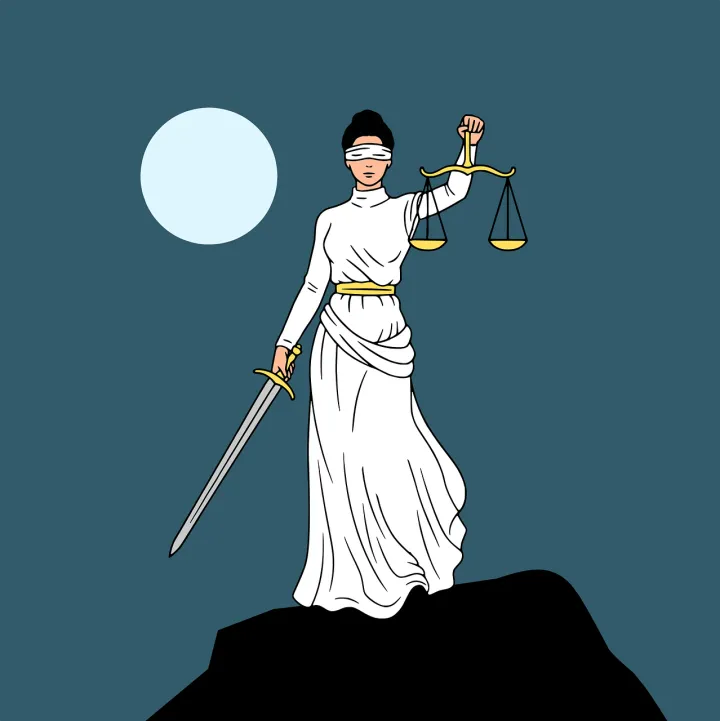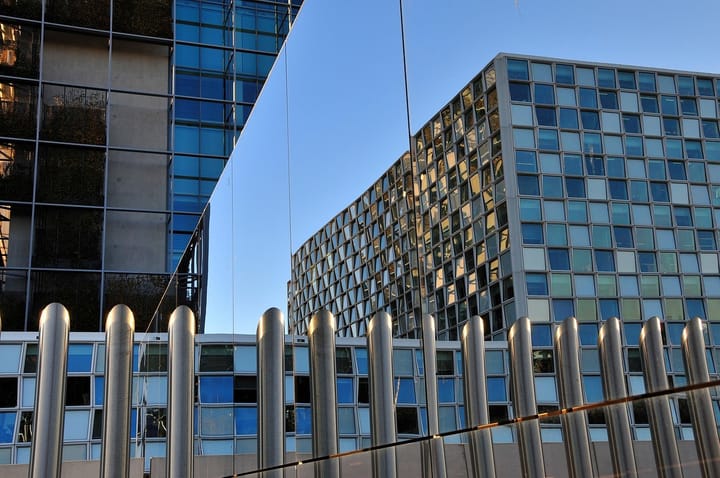A human rights legacy? Ten years since Philippine typhoon survivors sought climate justice
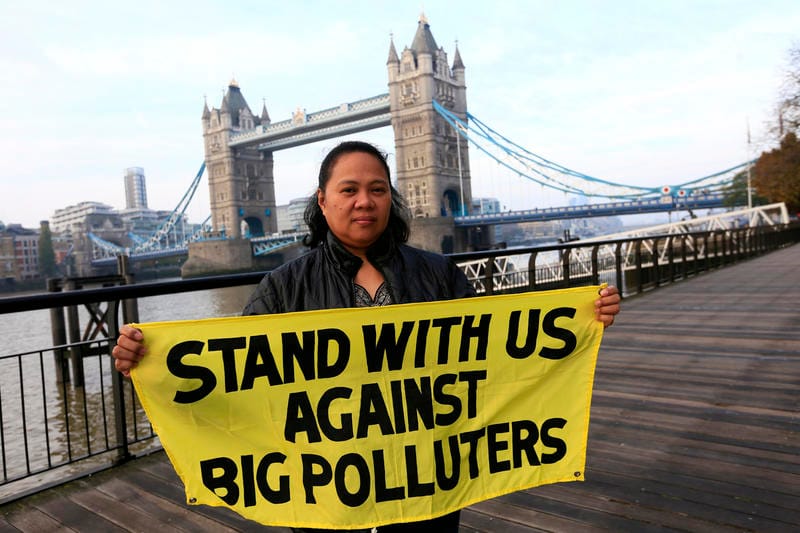
A pioneering piece of climate justice work by one of the world’s most climate-vulnerable nations appears to have slipped away from national and global consciousness, but it may yet have its moment in the spotlight.
It was just before Christmas in December 2021 when Super Typhoon Odette ripped across the Philippines, killing more than 400 people and displacing nearly 3.2 million during the Catholic country’s most celebrated holiday season. Health services were disrupted amid a surge of Covid-19 cases and millions of agricultural workers bore the heavy brunt of agriculture losses and food insecurity.
Today, nearly four years since the disaster (known outside the Philippines as Typhoon Rai), 67 survivors announced their intention to take fossil fuel giant Shell to court, seeking financial compensation for climate-related harms.
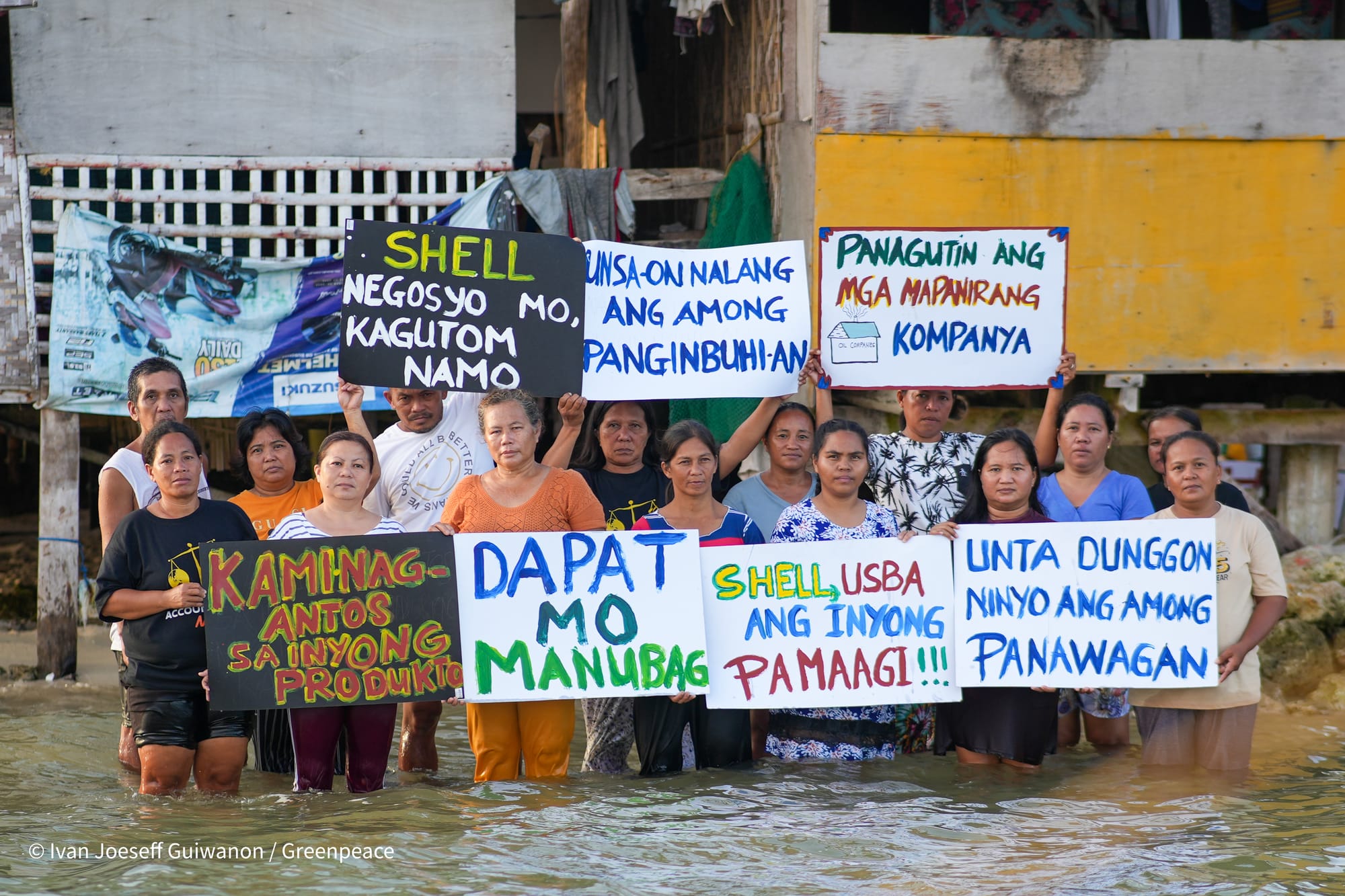
The lawsuit, which is set to be formally filed before the UK High Court later this year if Shell does not respond to their satisfaction to a letter before action, will be the first civil claim to directly link fossil fuel companies to deaths and injuries that have already occurred in the Global South, according to the legal team representing the claimants (although watch this space).
The case will apply Philippine laws, arguing that Shell violated the constitutional rights of the claimants to a balanced and healthy environment, and that it caused damage to claimants and acted with negligence for continuing its polluting business.
A documentary team from Dartmouth Films has been following their story alongside two other legal challenges against the fossil fuel industry. They expect to release it next year.
For Filipino climate campaigners, the case marks the next major step in an effort that began ten years ago, when survivors of 2013 Super Typhoon Haiyan and environmental groups sought an investigation into the responsibility of the world’s largest fossil fuel and cement producers for breaches of Filipinos’ human rights in relation to anthropogenic climate change.
Their petition, filed before the Commission on Human Rights (CHR) of the Philippines in September 2015, resulted in the National Inquiry on Climate Change (NICC), the world’s first investigation into corporate accountability for the climate crisis.
As Filipino typhoon survivors once again take centre stage to challenge fossil fuel companies, and as courts across the world begin to take up similar questions on the human rights toll of the climate crisis, the Odette case brings renewed attention to the Philippines’ trailblazing effort and its impact on climate litigation and policy a decade later.
What will we get out of it?
Veronica Cabe, a survivor of Typhoon Ketsana in 2009, joined the 2015 petition in the hopes that someone would be held accountable for what she and her community had gone through.
She recalls the Herculean effort that it took to even get the initial request to the doorstep of CHR, an independent body tasked with investigating human rights abuses in the Philippines. “Among the community members, the biggest question was: 'What will we get out of it?'” she tells The Wave. “Is there something concrete we can hold onto at the end of the day?”
After many discussions and lobbying from environmental and climate organisations, the effort proved worthwhile. CHR took on the petition, a move that was hailed as historic.
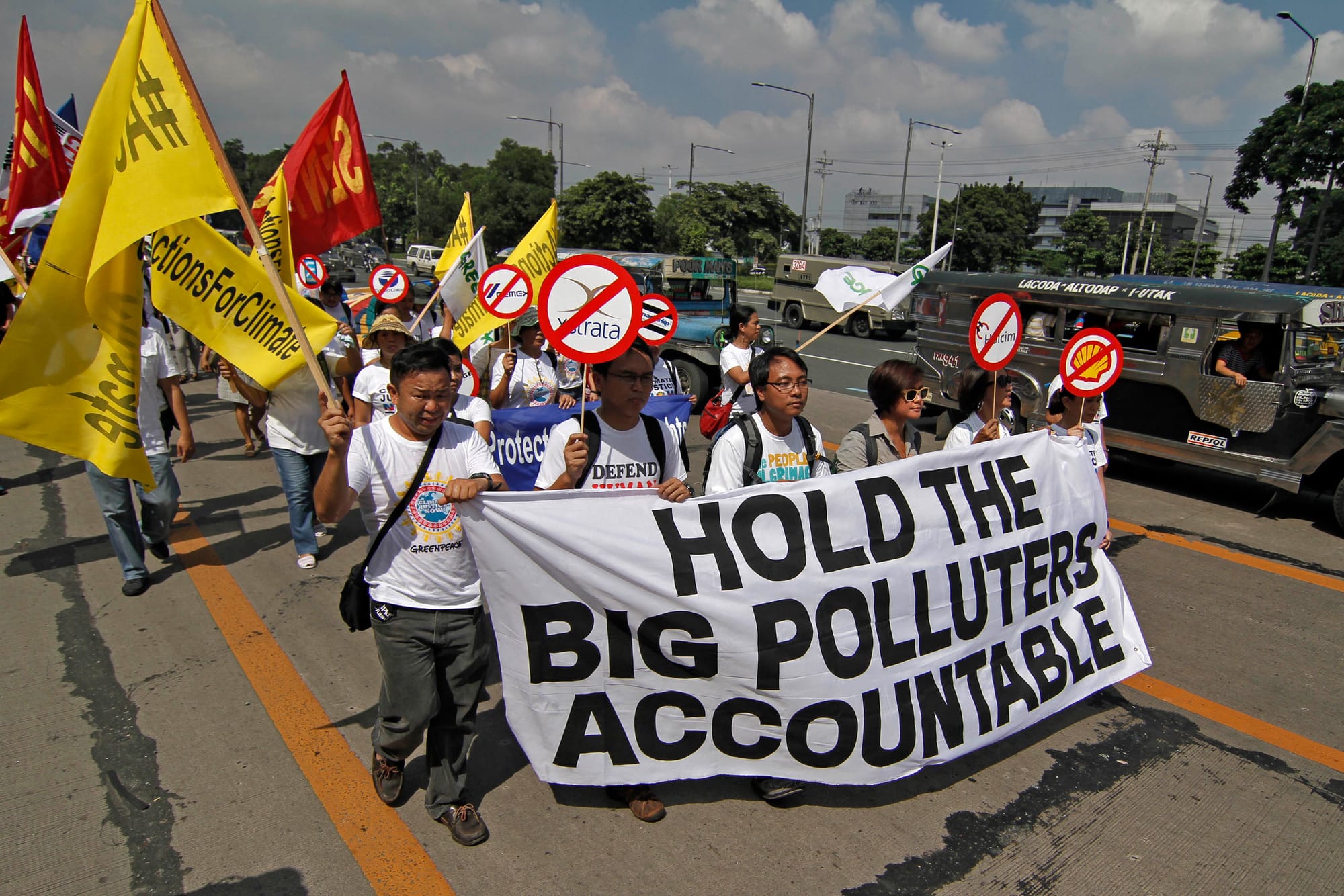
In 2018, six rounds of evidence sessions were held in Manila, New York and London, where survivors of extreme weather events, including Cabe, delivered personal testimonies, alongside professional input from climate scientists and litigation experts. These public hearings, according to the commission, were designed to be “dialogic, rather than adversarial”. Still, none of the companies under investigation openly attended the sessions.
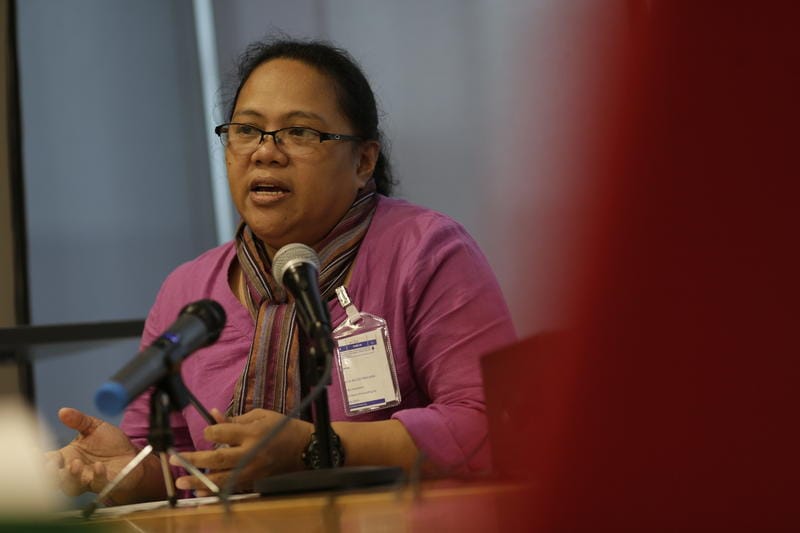
Although the key findings were revealed at a side event at COP25 in Madrid a year later, the petitioners’ celebration was undermined by the absence of a final report. Years had gone by, storms like Odette continued to wreak havoc, and the petitioners grew increasingly frustrated.
In 2021, Greenpeace filed two motions calling for an urgent resolution to their petition. Asked to comment on the timeline, former CHR commissioner Roberto Cadiz, who led the inquiry, tells The Wave he will not “waste time discussing this non-issue”.
“Was there a delay? When was the supposed deadline for the issuance of the report?” Cadiz says in a text response. “We could have submitted earlier, but we worked on it up to the last day to make it a good one.”
Finally, in May 2022, CHR published its 160-page final report, a day before the commissioners who led the inquiry stepped down at the end of their terms. It concluded that big polluters could be held "morally and legally liable" for climate damage, particularly for engaging in “willful obfuscation” of climate science and obstructing efforts towards decarbonisation.
Since then, little has been heard about the inquiry’s outcomes. Its recommendations to the Philippine government, which included the formulation of a national action plan on business and human rights, the amendment of existing climate and disaster laws, and the declaration of a “climate and environmental alert”, were ignored and went largely unnoticed by the general public.
In a written response to The Wave, CHR says it held a series of roundtable discussions and workshops to mainstream the report’s findings and recommendations with government agencies, financial institutions, academia and civil society. However, it does not specify the outcomes of these exchanges.
It adds that it is “strengthening its engagement” with other national human rights institutions to establish an international or regional mechanism to monitor the compliance of business and governments in relations to human rights.
“The NICC report may be considered as a body of evidence… [It] contributes to the growing body of literature on how climate change is a grave and urgent human rights concern,” it says.
Both the commission and Greenpeace Philippines, which was one of the key petitioners, separately host online repositories of documents related to the inquiry, but there is little evidence showing how the report has been used elsewhere. Additionally, The Wave individually checked all 251 links on CHR’s online database, which include transcripts of the hearings and copies of survivor testimonies and expert presentations, and found that all of them were dead. Even the link to the full report itself led to an Error 404 page on the commission’s website.
This missed opportunity is not lost on Cabe, who continues her work as a community organiser in Bataan, the longstanding stage of the country’s tussle with nuclear energy. The petitioners have already done their job, she says; it is the role of commission and the Philippine government to keep the ball rolling.
“To be candid, I somehow feel frustrated. That’s what often happens with good research. How do we make it meaningful?” she says. “The government should take the next step, but it’s not being maximised to our advantage and to the advancement of human rights.”
The report, however, was also bound by its nature because the commission could only investigate and make recommendations. It is not legally binding and there are no means of enforcing, litigating or awarding damages. While the petitioners knew this, Cabe says the CHR still has a role to play in championing its own report within the government, particularly the recommendations it had outlined.
“But when the report came out, the commissioners changed, and along with it, the commission’s priorities,” she says. “The supposed legacy has been missed because there was no sustainability.”
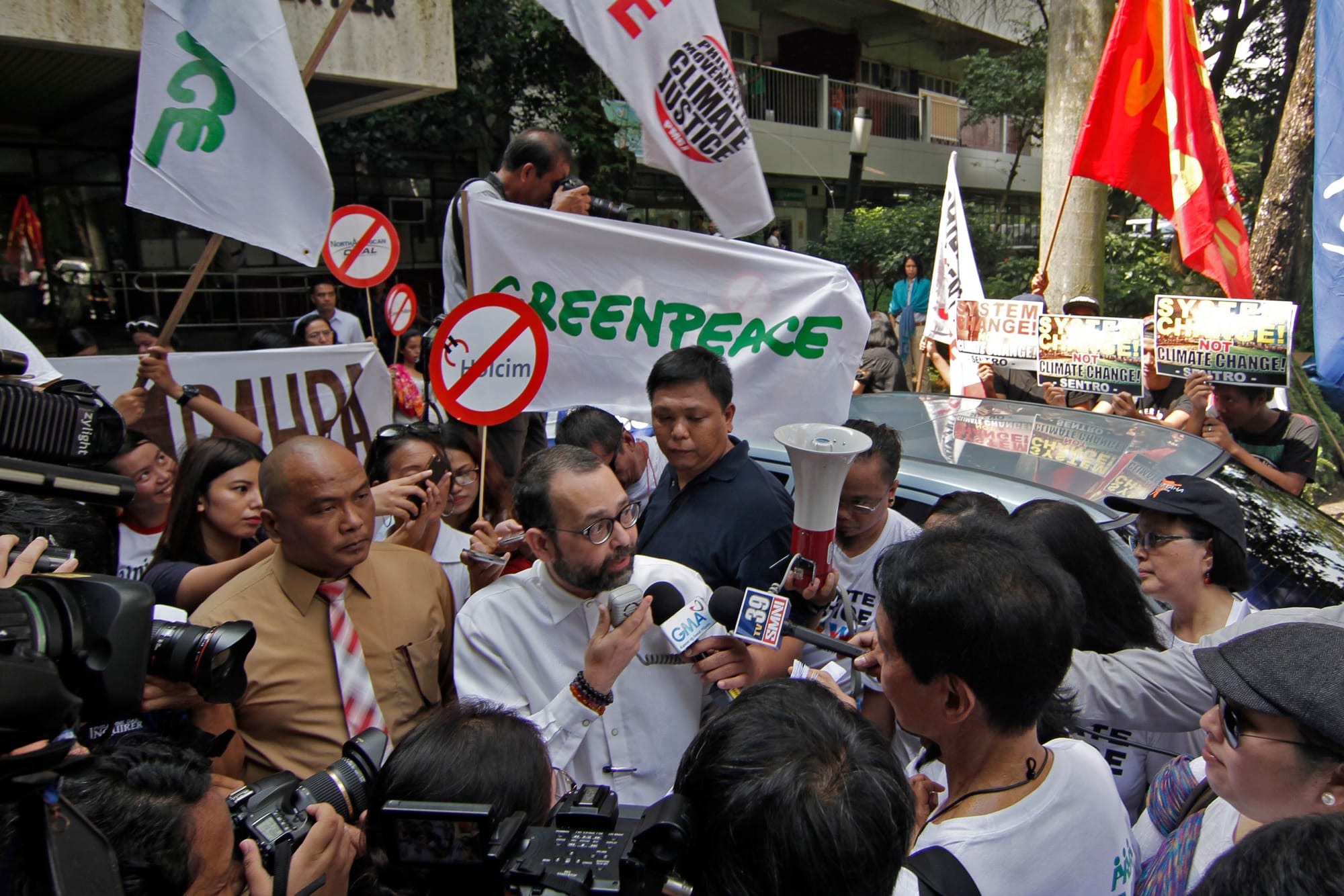
Antonio La Viña, a veteran climate and environmental lawyer and former climate negotiator, agrees with Cabe, adding that due to the change of leadership, the commission exhibited no ownership of the report. While it was important then to explore all avenues to establish the links between human rights and climate change, he says there has been minimal effort to disseminate its findings more widely, in stark contrast to the painstaking labour done for the actual inquiry.
“If the report was finished earlier, much more could have been done. By the time it was released, it was already stale,” he tells me. “It defeated the urgency of the matter.”
Greenpeace Philippines senior climate campaigner Virginia Benosa-Llorin acknowledges the efforts that the CHR poured into the inquiry, recalling exchanges where the commission said it did not want to release a report that was “not well studied”. But the years had also taken their toll, causing the report to lose novelty and slowly fall into irrelevance.
The circumstances at the time also did not benefit the inquiry.
In 2016, Rodrigo Duterte was swept to power, and his administration’s hallmark policy - the “war on drugs” - was marked by widespread state-sanctioned murders and human rights violations. (The International Criminal Court has since arrested and charged Duterte with crimes against humanity, and he has been in custody in The Hague since March.)
During this time, Duterte frequently attacked CHR and its commissioners, with his political allies in Congress even slashing the body’s annual budget to a measly 1,000 Philippine pesos (roughly £14) in 2017.
When the full report was finally released in 2022, presidential elections were just days away, inevitably taking attention away from its publication.
Benosa-Llorin says all these political factors resulted in a loss of momentum. “Human rights then were equated to killings, and not so much to climate justice. At that time, the window of opportunity to popularise the report and to be used by the government was lost.”
Intention is not enough
Since the petition was filed, it has been eclipsed by a global surge of climate litigation. Between 2015 and 2024, almost 3,000 climate-related cases were filed in courts around the world, according to researchers at the LSE; in 2024, around a fifth involved suing companies, or their directors and officers.
The CHR report was mentioned in a few corporate cases, including Dutch NGO Milieudefensie’s initial lawsuit against Shell (currently being appealed to the nation’s Supreme Court) and the US County of Multnomah’s ongoing damages claim against ExxonMobil. South Korea’s also mentioned it in a 2023 opinion about the constitutionality of the Carbon Neutrality Act to support complaints which were later partially upheld.
But La Viña says that while the report will continue to be useful as a reference in future climate litigation, it will lose relevance as climate cases and attribution science rapidly evolve. In just the last year, a case brought by Peruvian farmer Saúl Luciano Lliuya against energy company RWE established a “powerful” legal precedent that the world’s major emitters can be held liable for climate-related harms. And the landmark advisory opinion of International Court of Justice in July ruled that states could be held liable for failing to curb fossil fuels.
“One thing I’ve learned from the ICJ advisory opinion is that intention is good, but it’s not enough. We need results,” says La Viña. “Obligation to results is more important than being pioneering.”
There have not been any lawsuits in the Philippines in relation to climate harms, but that is primarily because the major fossil fuel firms responsible for the crisis are based outside the country. The Odette lawsuit, for instance, will be filed in UK court because Shell is headquartered in London.
But this case may finally be the NICC's breakthrough moment for
Filipinos. Jefferson Chua, campaigner for Greenpeace Philippines which spearheaded the petition and now supports the claimants for the UK case, says the inquiry was an "important piece of the puzzle" and its findings on corporate responsibility boost legal arguments in favour of the typhoon survivors.
“The defendants will have to contend with injury and property damage
through the lenses of human rights,” he says. "This adds a significant layer that bolsters the claims."
The CHR says it fully supports the survivors of Odette in “seeking legal redress to attain effective remedies in the name of environmental justice”.
But Chua thinks the wave of climate litigation around the globe shows that communities are rising up on their own to demand accountability. "I believe that the case is an inevitability for a country like the Philippines. Hopefully other communities find inspiration in the courage of the claimants and demand accountability from oil and gas companies like Shell.”
A noteworthy domestic move, however, is the proposed climate accountability bill that is currently filed in the Philippine House of Representatives. The CLIMA Act seeks to establish a legal framework to hold businesses and corporations accountable for the climate crisis and mandates climate-related financial disclosures, greenhouse gas emissions measurement, and prevention of human rights abuses. Similar to the NICC, which the bill references in its explanatory note, it poses as a pioneering piece of legislation in the Global South.
“You can say this is the second step from the report,” says Benosa-Llorin. “It’s part of a continuing global effort, and it’s important as it can provide a legal basis and also put our communities front and centre.”
"This was our way to fight back"
Nearly a decade since Cabe shared her testimony of survival from Ketsana’s floods, Filipinos continue to buckle under the weight of worsening extreme weather disasters. Last month, Typhoon Ragasa - already the most intense tropical cyclone of 2025 - displaced thousands of families and destroyed millions of pesos worth of agriculture and infrastructure. And just this week, Storm Fengshen triggered heavy flooding, storm surges and landslides, killing eight people and forcing at least 47,000 people to leave their homes.
Already fed up with constant floods and corruption scandals linked to botched and ghost flood control projects, tens of thousands of Filipinos stormed the streets last month to protest and express their rage.
It is the kind of anger, exhaustion and desperation that spills from global courts to social media and the streets, and it is a similar flurry of emotions that drew Cabe to the CHR petition in the first place. Looking back, she says that documenting their testimonies was already their major contribution in demanding accountability and pursuing justice.
“For us, this was not just a campaign. This was our way to fight back,” she says. “When the decision was released, our stories and experiences have been validated.”
Still, there is more work to be done ahead, not only for community organisers and climate activists like herself; the heavier task lies on governments to protect people from further climate harm. “Our hope is this report will be fully utilised,” Cabe says. “That’s the work in progress.”

